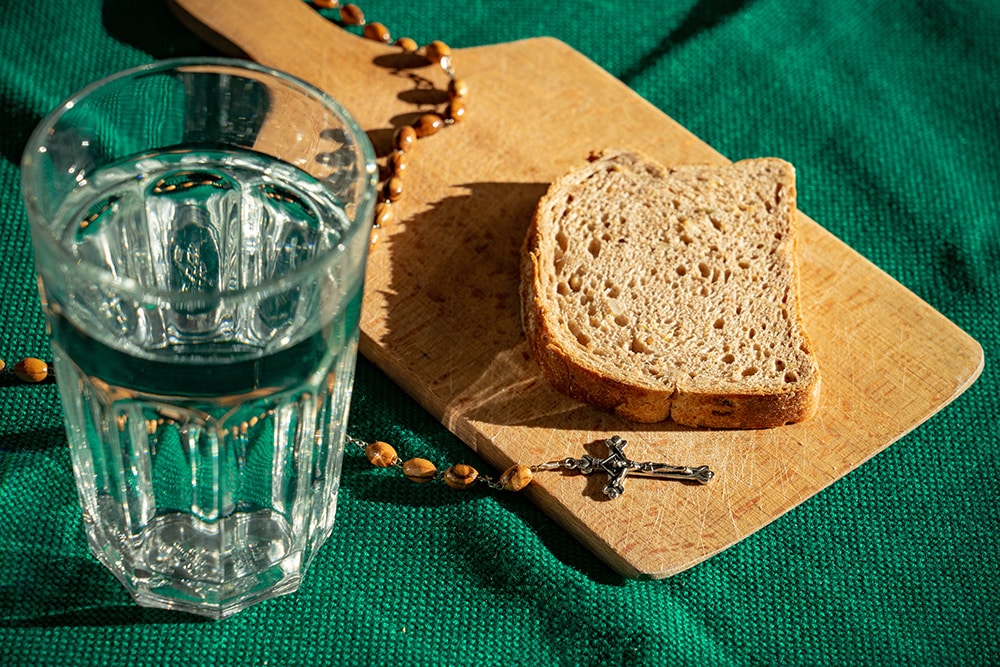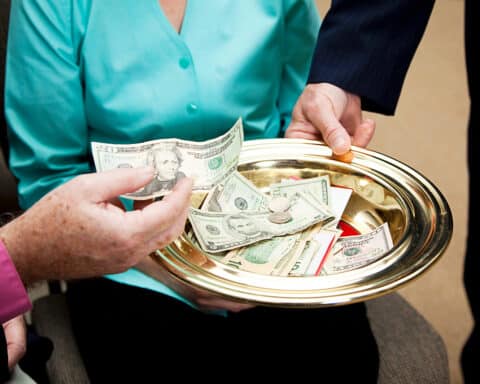
— Gretchen Elliott, via email
Answer: Yes, most certainly. In fact, God would not commend fasting to us if it were harmful or merely painful for its own sake. Fasting brings many benefits, the chief of which is self-control. Fasting can bring other benefits as well, such as needed weight loss, better health, the resetting of the appetite, monetary savings and so forth.
If one were to undertake fasting merely for various reasons, such as only for appearance, it could be argued that it was not sacrificial, at least in the spiritual sense. But it sounds as if you are undertaking the practice as a way of trying to end the pandemic and bring healing and relief to others who are suffering physically, economically and spiritually. This is good, and God will not leave unrewarded those who undertake such acts of love for others.
Christ’s death is fitting
Question: Why did Jesus have to die to save us from sins? Why was death required? Is it because a broken covenant requires a death, and mankind has broken them all?
— Sharon Hart, Longmeadow, Massachusetts
Answer: When it comes to matters such as this, it is better to speak of what is fitting rather than what “had” to be. God could have done any number of things to save us, but given the nature of our sin and his own provision in the Old Covenant, the death of Jesus was the most fitting solution.
The Book of Hebrews says: “Thus not even the first covenant was inaugurated without blood. When every commandment had been proclaimed by Moses to all the people according to the law, he took the blood of calves [and goats], together with water and crimson wool and hyssop, and sprinkled both the book itself and all the people, saying, ‘This is “the blood of the covenant which God has enjoined upon you.'” In the same way, he sprinkled also the tabernacle and all the vessels of worship with blood. According to the law almost everything is purified by blood, and without the shedding of blood there is no forgiveness. Therefore … Christ did not enter into a sanctuary made by hands, a copy of the true one, but heaven itself, that he might now appear before God on our behalf. … But now once for all he has appeared at the end of the ages to take away sin by his sacrifice” (Heb 9:18-26).
Hebrews later adds: “for it is impossible that the blood of bulls and goats take away sins. For this reason, when he came into the world, he said: ‘Sacrifice and offering you did not desire, but a body you prepared for me; holocausts and sin offerings you took no delight in. Then I said, “As is written of me in the scroll, Behold, I come to do your will, O God”‘” (Heb 10:4-7)
And thus, the New Covenant builds on and perfects the old. But a large part of your question remains: Why was the death of animals or Jesus required in the first place? The answer goes to the nature of our sin. Adam and Eve were told by God not to seek the knowledge of evil by eating from the tree of the knowledge of good and evil. They were to trust God to teach them this. He warned them if they partook of that fruit, suffering and death would be their lot (cf. Gn 2:17). Sadly, we know well what they did. In resolving the sin of Adam, God did not simply overrule their decision, for that would be to rob them of their freedom. Rather, he came and took up the very suffering and death they ushered in and transformed it into a way back to him. We got into trouble through a man, a woman and a tree. We get out of trouble through a man (Christ, the new Adam), a woman (Mary, the new Eve) and a tree (the cross). Mary’s obedience is the answer to Eve’s disobedience, and Christ’s obedience is both the answer to Adam’s disobedience and he alone becomes the source of our salvation. In so doing Christ, though innocent, takes up the death caused by us and opens our death as a path to eternal life. This is both fitting and marvelous.
Msgr. Charles Pope is the pastor of Holy Comforter-St. Cyprian in Washington, D.C., and writes for the Archdiocese of Washington, D.C. at blog.adw.org. Send questions to msgrpope@osv.com.





